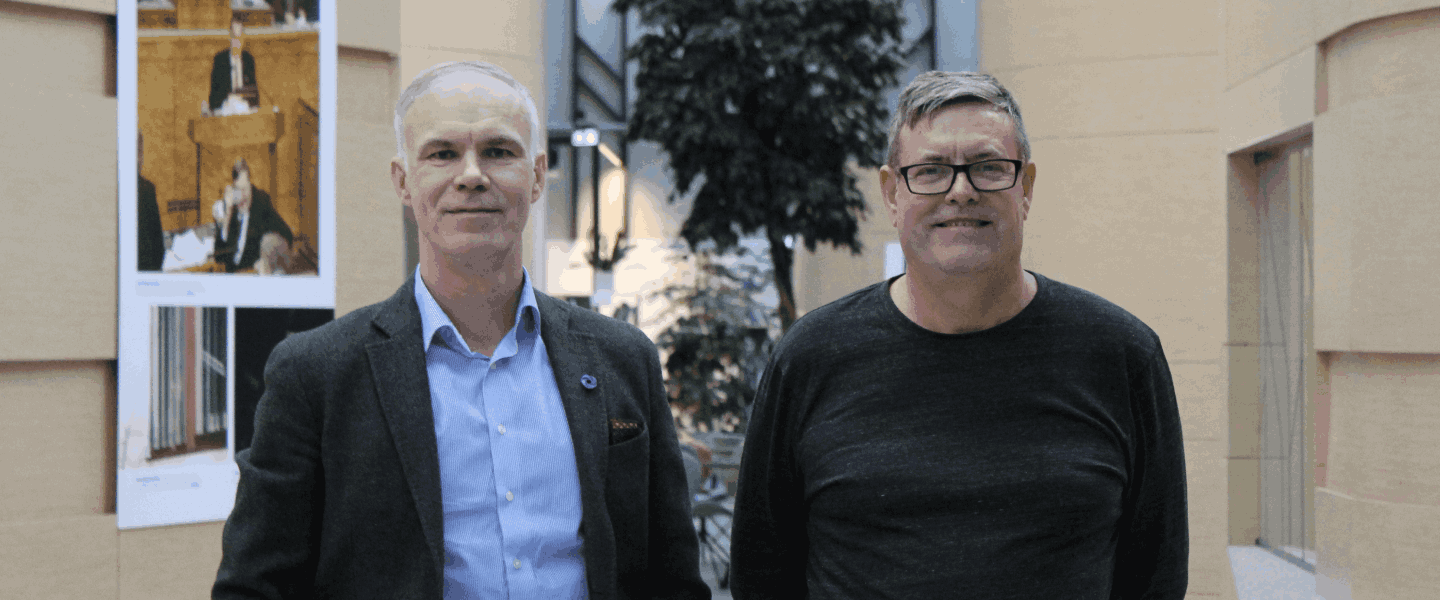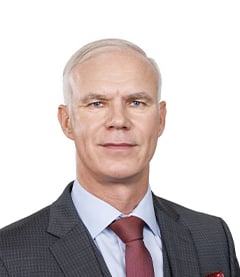-
Other audit services
We help clients with the application and use of foreign financial aid of EU and other funds and help prepare financial reports.
-
Audit calculator
The calculator will answer if the company's sales revenue, assets or number of employees exceed the limit of an inspection or audit.
-
Payroll and related services
We perform payroll accounting for companies whether they employ a few or hundreds of employees.
-
Tax accounting
Grant Thornton Baltic's experienced tax specialists support accountants and offer reasonable and practical solutions.
-
Reporting
We prepare annual reports in a timely manner. We help to prepare management reports and various mandatory reports.
-
Consolidation of financial statements
Our experienced accountants and advisors help you prepare consolidation tables and make the consolidation process more efficient.
-
Consultancy and temporary staff
Our experienced specialists advise on more complex accounting transactions, rectify poor historic accounting, and offer the temporary replacement of an accountant.
-
Outsourced CFO service
Our CFO service is suitable for companies of all sizes and in all industries. We offer services to our clients in the required amount and competences.
-
Assessment of accounting processes
We help companies to implement accounting practices that are in compliance with local and international standards.
-
Accounting services for small businesses
We offer affordable service for small businesses. We help organize processes as smartly and cost-effectively as possible.
-
Cryptocurrency accounting
We keep up with blockchain technology to serve and advise crypto companies. We are supported by a network of colleagues in 130 countries.
-
Trainings and seminars
Our accountants have experience in all matters related to accounting and reporting. We offer our clients professional training according to their needs.

-
Business advisory
We offer legal support to both start-ups and expanding companies, making sure that all legal steps are well thought out in detail.
-
Fintech advisory
Our specialists advise payment institutions, virtual currency service providers and financial institutions.
-
Corporate advisory
We advise on legal, tax and financial matters necessary for better management of the company's legal or organizational structure.
-
Transaction advisory
We provide advice in all aspects of the transaction process.
-
Legal due diligence
We thoroughly analyze the internal documents, legal relations, and business compliance of the company to be merged or acquired.
-
In-house lawyer service
The service is intended for entrepreneurs who are looking for a reliable partner to solve the company's day-to-day legal issues.
-
The contact person service
We offer a contact person service to Estonian companies with a board located abroad.
-
Training
We organize both public trainings and tailor made trainings ordered by clients on current legal and tax issues.
-
Whistleblower channel
At Grant Thornton Baltic, we believe that a well-designed and effective reporting channel is an efficient way of achieving trustworthiness.

-
Business model or strategy renewal
In order to be successful, every company, regardless of the size of the organization, must have a clear strategy, ie know where the whole team is heading.
-
Marketing and brand strategy; creation and updating of the client management system
We support you in updating your marketing and brand strategy and customer management system, so that you can adapt in this time of rapid changes.
-
Coaching and development support
A good organizational culture is like a trump card for a company. We guide you how to collect trump cards!
-
Digital services
Today, the question is not whether to digitize, but how to do it. We help you develop and implement smart digital solutions.
-
Sales organisation development
Our mission is to improve our customers' business results by choosing the right focuses and providing a clear and systematic path to a solution.
-
Business plan development
A good business plan is a guide and management tool for an entrepreneur, a source of information for financial institutions and potential investors to make financial decisions.
-
Due diligence
We perform due diligence so that investors can get a thorough overview of the company before the planned purchase transaction.
-
Mergers and acquisitions
We provide advice in all aspects of the transaction process.
-
Valuation services
We estimate the company's market value, asset value and other asset groups based on internationally accepted methodology.
-
Forensic expert services
Our experienced, nationally recognized forensic experts provide assessments in the economic and financial field.
-
Business plans and financial forecasts
The lack of planning and control of cash resources is the reason often given for the failure of many businesses. We help you prepare proper forecasts to reduce business risks.
-
Outsourced CFO service
Our CFO service is suitable for companies of all sizes and in all industries. We offer services to our clients in the required amount and competences.
-
Reorganization
Our experienced reorganizers offer ways to overcome the company's economic difficulties and restore liquidity in order to manage sustainably in the future.
-
Restructuring and reorganisation
We offer individual complete solutions for reorganizing the structure of companies.
-
Corporate taxation
We advise on all matters related to corporate taxation.
-
Value added tax and other indirect taxes
We have extensive knowledge in the field of VAT, excise duties and customs, both on the national and international level.
-
International taxation
We advise on foreign tax systems and international tax regulations, including the requirements of cross-border reporting.
-
Transfer pricing
We help plan and document all aspects of a company's transfer pricing strategy.
-
Taxation of transactions
We plan the tax consequences of a company's acquisition, transfer, refinancing, restructuring, and listing of bonds or shares.
-
Taxation of employees in cross-border operations
An employee of an Estonian company abroad and an employee of a foreign company in Estonia - we advise on tax rules.
-
Tax risk audit
We perform a risk audit that helps diagnose and limit tax risks and optimize tax obligations.
-
Representing the client in Tax Board
We prevent tax problems and ensure smooth communication with the Tax and Customs Board.
-
Taxation of private individuals
We advise individuals on personal income taxation issues and, represent the client in communication with the Tax and Customs Board.
-
Pan-Baltic tax system comparison
Our tax specialists have prepared a comparison of the tax systems of the Baltic countries regarding the taxation of companies and individuals.
-
Internal audit
We assist you in performing the internal audit function, performing internal audits and advisory work, evaluating governance, and conducting training.
-
Internal Audit in the Financial Services Sector
We provide internal audit services to financial sector companies. We can support the creation of an internal audit function already when applying for a sectoral activity license.
-
Audit of projects
We conduct audits of projects that have received European Union funds, state aid, foreign aid, or other grants.
-
Prevention of money laundering
We help to prepare a money laundering risk assessment and efficient anti-money laundering procedures, conduct internal audits and training.
-
Risk assessment and risk management
We advise you on conducting a risk assessment and setting up a risk management system.
-
Custom tasks
At the request of the client, we perform audits, inspections and analyzes with a specific purpose and scope.
-
External Quality Assessment of the Internal Audit Activity
We conduct an external evaluation of the quality of the internal audit or provide independent assurance on the self-assessment.
-
Whistleblowing and reporting misconduct
We can help build the whistleblowing system, from implementation, internal repairs and staff training to the creation of a reporting channel and case management.
-
Information security management
We provide you with an information security management service that will optimise resources, give you an overview of the security situation and ensure compliance with the legislation and standards.
-
Information security roadmap
We analyse your organisation to understand which standards or regulations apply to your activities, identify any gaps and make proposals to fix them.
-
Internal audit of information security
Our specialists help detect and correct information security deficiencies by verifying an organization's compliance with legislation and standards.
-
Third party management
Our specialists help reduce the risks associated with using services provided by third parties.
-
Information security training
We offer various training and awareness building programmes to ensure that all parties are well aware of the information security requirements, their responsibilities when choosing a service provider and their potential risks.
-
Digital Operational Resilience Act (DORA)
We will help you create a DORA implementation model that meets your company's needs and ensures that you meet the January 2025 deadline.

-
ESG advisory
We help solve issues related to the environment, social capital, employees, business model and good management practices.
-
ESG audit
Our auditors review and certify sustainability reports in line with international standards.
-
Sustainable investments
We help investors conduct analysis of companies they’re interested in, examining environmental topics, corporate social responsibility and good governance practices.
-
Sustainable tax behaviour
Our international taxation specialists define the concept of sustainable tax behaviour and offer services for sustainable tax practices.
-
ESG manager service
Your company doesn’t necessarily need an in-house ESG manager. This role can also be outsourced as a service.

-
Recruitment services – personnel search
We help fill positions in your company with competent and dedicated employees who help realize the company's strategic goals.
-
Recruitment support services
Support services help to determine whether the candidates match the company's expectations. The most used support services are candidate testing and evaluation.
-
Implementation of human resource management processes
We either assume a full control of the launch of processes related to HR management, or we are a supportive advisory partner for the HR manager.
-
Audit of HR management processes
We map the HR management processes and provide an overview of how to assess the health of the organization from the HR management perspective.
-
HR Documentation and Operating Model Advisory Services work
We support companies in setting up HR documentation and operational processes with a necessary quality.
-
Employee Surveys
We help to carry out goal-oriented and high-quality employee surveys. We analyse the results, make reports, and draw conclusions.
-
HR Management outsourcing
We offer both temporary and permanent/long-term HR manager services to companies.

-
Digital strategy
We help assess the digital maturity of your organization, create a strategy that matches your needs and capabilities, and develop key metrics.
-
Intelligent automation
We aid you in determining your business’ needs and opportunities, as well as model the business processes to provide the best user experience and efficiency.
-
Business Intelligence
Our team of experienced business analysts will help you get a grip on your data by mapping and structuring all the data available.
-
Cybersecurity
A proactive cyber strategy delivers you peace of mind, allowing you to focus on realising your company’s growth potential.
-
Innovation as a Service
On average, one in four projects fails and one in two needs changes. We help manage the innovation of your company's digital solutions!


Preparing for retirement
Probert-Ehaver was 57 years old at the time of the transaction and mindful of the fact that retirement wasn’t far off. He had two possibilities for exiting the life’s work he had built over the decades. Plan A was that he would sell the majority stake in BK Group to the management of BK Group’s subsidiaries – the Estonian, Latvian and Lithuanian units. “They wanted to become shareholders and so we agreed that they would gradually buy me out. I was hoping to retain one-fifth of the company as a pension earner,” he said.
Agreement had been reached on this in 2014, but four years later, BK group’s major supplier Hikvision played a wild card, making an offer to buy the company. “So, I had to choose whether to continue with my existing plan or accept their offer. If I had done the former, that would have left the risk that the supplier would quit selling to us at some point, which would have meant we needed a crisis plan,” said Probert-Ehaver about the considerations that led to the decision to sell.
With help from an adviser, the price went up severalfold
Having decided to sell, Probert-Ehaver contacted Grant Thornton to retain the services of an advisor who would guide him through the transaction process and assist in the negotiations. “The price ultimately paid was higher than the original offer,” he said, emphasizing that retaining an adviser paid off.
The head of Grant’s taxation business area, Kristjan Järve, said the role of the adviser originally lay in reviewing the buyer’s offer. “It was important to find an objective methodology to proceed from in negotiations, and we realised that the price could really be double or triple the original offer,” he said.
Järve said the price negotiations were hard due to the emotional level alone. “The seller sees it all as his life’s work and his assumptions and future perspectives are often not shared by the buyer,” he said. “The buyer will emphasize different assumptions in his analyses and tend to have a more conservative and pessimistic future vision, one where market risks are factored in more heavily,” he said regarding the situation going into the negotiations that succeeded in haggling a better offer than the original one.
A time-consuming process
The biggest surprise about the transaction for Probert-Ehaver was that it took so much time to go from the negotiations to closing the deal. “The buyer made their offer in summer 2019, we set out the intentions in the form of a contract that autumn but the deal was closed only in autumn 2020.” “But our colleagues in China promised the matter would be done quickly and their representative express their opinion at the end of the sale process that in fact it had gone fast – he said they’d never closed a deal that quickly.”
Järve said that the Estonian and Baltic perspective of the understanding of timeframe for finalising a deal is completely different to major corporations in Asia. “International buyers of that size hire advisers and they in turn retain the services of local advisers and verify everything on many levels,” he said. “Time must be budgeted.” Järve added that in reality, the finalisation of the deal went past October 2020; because the Chinese needed state approval for the deal.
Järve noted that the bigger the buyer, the more thorough they are. “They go over everything with a fine-toothed comb with the advisers and turn every stone a number of times,” he said. “Although the data we submitted were clear, the behemoth international group insisted on following its own rules, and investigate every detail, which meant additional workload for our management and our accountants also had a very tough half-year,” said Probert-Ehaver.
Järve emphasizes that for international and especially Asian corporations, it makes no difference whether the turnover of the company they are buying is in the hundreds of millions or the tens of millions. “The difference is that the large company can cope better with all of it while smaller ones have to ensure they keep their operations steady and distribute resources.”
In the end, things went well, no mistakes were found in the course of auditing BK Group and signing the final contract make it possible to use the options made possible by Estonia’s digital society and public services. “The transaction was notarised, not all parties could travel to Estonia due to the pandemic and so the remote authentication solution introduced by the Estonian Chamber of Notaries came in handy – without it, the transaction would have taken significantly longer, but now the three companies owned by BK Group were sold under one contract,” said Järve.
A deal that defied the US-China trade wars
During the negotiations, BK Group learned that Hikvision was blacklisted by a number of Western countries, being a Chinese entity. Even Lithuania decided to criticise the deal, pointing to potential security risks. This didn‘t deter the parties. “We weren’t directly influenced by any regulator or external party and thus the topic didn’t come up in negotiations,” said Probert-Ehaver.
Järve noted that the concern was about the trade disputes between China and political games. “To my knowledge, the second-largest manufacturer of security cameras is also a Chinese company,” he said, saying that the market would be controlled by the Chinese even in the absence of the BK Group deal. “As long as relations between China and the US are strained, all the others have to choose sides, but I would say that China’s technological level is higher than that of the US,” said Probert-Ehaver.
If you have similar challenges and have questions, please contact our transaction advisors.





